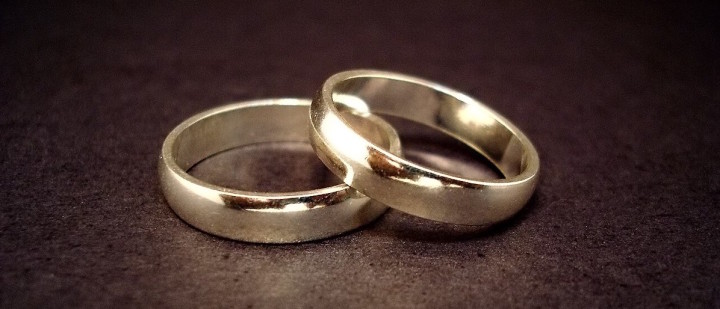The High Court has ruled in the case of Steinfeld and Keidan v Secretary of State for Education. This was a human rights challenge to the law of Civil Partnerships. Mrs Justice Andrews ruled that the current law does not breach the rights of opposite-sex couples who cannot obtain a Civil Partnership.
The case arises from the odd state the law was left in after same-sex couples were given the legal right to marry in 2014. Since 2005, same-sex couples had been allowed to form “Civil Partnerships” which give them essentially the same legal rights and protections as marriage without being able to actually marry. Only same-sex couples can have a civil partnership. Civil Partnerships were a kind of half-way house; the message they sent was that the (New Labour) government wanted to give same-sex couples legal protection akin to marriage but didn’t feel that society was quite ready for full marriage equality.
Once same-sex couples were given the right to marry in 2014, the law was left in a bit of a mess. Same-sex couples have dual means of recognising their partnerships (Civil Partnerships and Marriage) whereas opposite-sex couples could only marry. This is clearly an unintended consequence of the winding route to marriage equality rather than any well-thought out plan.
In 2014, it would have been open to the government to abolish civil partnerships altogether or permit everyone to enter into them. Instead, a “wait and see” approach was adopted.
Rebecca Steinfeld and Charles Keiden (full disclosure: they are friends of mine) wanted to enter into a civil partnership but were prevented because they were not of the same sex. They brought a human rights case against the government saying they were being discriminated against by the current law.
Mrs Justice Andrews rejected their case in strong terms. You can read the full judgment here. I recommend doing so – it is tightly argued and very clear.
In cases involving the right to family and private life, there are two basic stages a judge needs to consider. First, is there an interference with the right – in other words, does the thing that is being complained about interfere with family or private life as it is defined in the European Convention and court judgments. Let’s call that Gate 1. If you get through Gate 1, you then have to get through Gate 2, which is to show that the interference was not justified with reference to proportionality (did the end justify the means?) and other balancing factors which are the text of the right itself.
The claimants here didn’t get through the first gate. Mrs Justice Andrews accepted the government’s argument that Article 8 of the European Convention on Human Rights (the right to family and private life) was not even engaged, let alone breached. Here’s a key bit of the judgment explaining why:
The state has fulfilled its obligations under the Convention by making a means of formal recognition of their relationship available. The denial of a further means of formal recognition which is open to same- sex couples, does not amount to unlawful state interference with the Claimants’ right to family life or private life, any more than the denial of marriage to same-sex couples did prior to the enactment of the 2013 [Same-Sex Marriage] Act. There is no lack of respect afforded to any specific aspect of the Claimants’ private or family life on account of their orientation as a heterosexual couple. Thus the statutory restrictions complained of do not impinge upon the core values under either limb of Art 8 to the degree necessary to entitle the Claimants to rely upon Art 14. The link between the measures complained of, and their right to enjoy their family and private life, is a tenuous one.
There is a powerful argument over on the UK Human Rights Blog (written before the judgment) about why this might be problematic.

As judges usually do, Mrs Justice Andrews went on to consider “Gate 2” anyway, in case she was wrong about Gate 1. She accepted the government’s argument that their approach to the issue (“wait and see”) had been perfectly reasonable.
Where next? Potentially an appeal. The BBC reports the couple were given permission to appeal which means they can appeal to the Court of Appeal if they choose to do so. If they do appeal, they will have to convince the Court of Appeal that there has been an interference with the right to family life (Gate 1 – certainly arguable) but also that the interference was not justified. Gate 2 will be harder.
As things stand, the law is in a mess. Even if it is not a breach of human rights to refuse opposite sex couples the right to have civil partnerships, that doesn’t mean it is fair or right.






